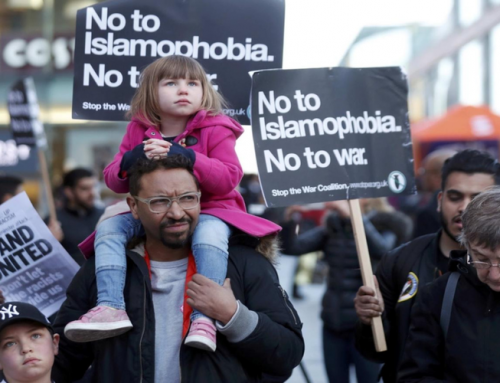Economic studies show that the real victim of terrorism is developing countries, particularly Muslim countries. This is due to the lack of diversity in these economies, unlike the rich economies that have a greater capacity to withstand the effects of terrorist attacks. This puts extremists, who seek, by attacking the West, some sort of punishment, in a dilemma that makes Muslim countries more affected by their actions. For example, the September 11 attacks caused very limited loss in the American economy, about 80 billion dollars, which is less than 0.1% of the US GDP, which has been 10.6 trillion dollars in 2001. In 2004, Bloomberg News Agency conducted a specialized study, which found that the trans-boundary effects of terrorist attacks were inconsiderable to some extent on average of 177 countries between 1968-2000. Since, if terrorism had succeeded in disrupting productive activities in one sector in the major economies, the resources would easily flow into another sector, which had not been damaged. In addition, the rich economies have a lot of resources to combat terrorism which will lead to a reduction in the number of the terrorist activities. As a result, this will refute the terrorists’ claim that they are causing harm to the powerful countries due to their meddling in their countries or siding with Israel in the Arab-Israeli conflict for decades now.
However, economic immunity in the developing countries started going down, including in most Muslim countries. Therefore, their economies have faced a setback due to the weakness of these confined economies in few sectors. Thus, the labor force and capital will leave the damaged sectors and go to the less productive activities within the country or move to another country. This is happening in Muslim countries where development classifications are always going down because of the repeated waves of violence. Moreover, most countries go through an economic recession, which will affect people’s life more than the ruling classes who are usually the terrorists’ target. For instance, Moody’s credit rating indicates that the Russian plane crash in Egypt will weigh negatively on the credit rating of the state after a number of tourist tour organizers have decided to suspend tourist trips to Egypt, which contributes to the  reduction of foreign currency resources and would influence Egypt’s credit. Indeed, losses are stretching to other sectors like the stock market in which the losses have increased to more than one billion dollars after the Russian plane accident in Sharm el-Sheikh.
reduction of foreign currency resources and would influence Egypt’s credit. Indeed, losses are stretching to other sectors like the stock market in which the losses have increased to more than one billion dollars after the Russian plane accident in Sharm el-Sheikh.
In (1991-2000), Algeria stood as a model for such a situation, where violence and terrorism have spread all over the country resulting in a terrible economic depression and isolation. Therefore, Algerians haven’t been able to breathe a sigh of relief until they maintained the security situation in their country. The same thing applies to Afghanistan, Pakistan, Iraq, Syria and other Muslim countries which suffer not only from direct losses due to violence, but also bear other costs of combating terrorism, such as purchasing surveillance equipment, training programs for police and advanced technology, the thing that put more burden on ordinary citizens.
The Center for Economy and Peace reports that the negative cost of the terrorist attacks in 2015 amounted to about 53$ billion dollars. The index of the center measures the main factors for terrorism in each country and gives each a degree that reflects the conditions of those factors on a five-year average. The more progress the country makes on this index, the more this country is exposed to terrorist attacks. In this essential and important report, the center comes to a conclusion that the current waves of terrorism and those seen in 2015 have caused the highest annual loss ever which was higher than the total loss in 2014 by 60% and ten times more than the loss recorded in 2000. Indeed, it is a pity that most losses have been endured by Muslim countries. This 53 billion dollars loss is not the overall cost of terrorism, but there is also 117 billion dollars spent on fighting terrorism.
These statistics presented by the Center for Economy and Peace seem to be trivial in light with the published statistics by specialized Arab agencies. Noor Al Haraki, the Ambassador of the International Organization for Development and Human Rights and the Chairman of the Global Arab Forum for Peace, confirmed that the Arab economy is exposed to losses up to 300 billion dollars annually due to internal and external terrorism. However, a lengthy report issued by Zawya Press indicated that ISIS has caused considerable losses to the Arab region which exceeded one trillion dollars in some sectors like oil, tourism and infrastructure in 2014, after the first anniversary of declaring the Islamic Caliphate led by ISIS. During one year of direct and indirect military confrontation with ISIS, the GDP in some countries such as Syria, Iraq, and Tunisia has declined and the military spending has increased to more than 40 percent in several Arab countries.
Iraq has paid the most expensive bill because of this phenomenon. Some Iraqi government reports indicate that Iraqi direct losses because of ISIS in one year exceeded 200 billion dollars, including the sectors of energy, infrastructure, military establishment and private and public properties. The acts of violence has caused a serious damage to the tourism sector in Tunisia which the country relies on as a source of income, and this damage affected the purchase power of the Tunisian citizen. Also, the war against ISIS has caused damages to Jordan by stopping the largest joint venture between Iraq and Jordan, which cost approximately 18 billion dollars, to transport Iraqi oil from Haditha to the Jordanian port of Aqaba that would have contributed a lot to the Jordanian Treasury.
Ironically, the September 11 attacks, led by Al-Qaida, that aimed to harm the USA, resulted in opposite results since the Congress has in 2001 approved huge budgets to develop the Ministry of Internal Security, exceeding 589 billion dollars in addition to approving a huge budget to finance the war on terrorism estimated at 1.6 trillion dollars and other budgets to cover the cost of continuing wars and to take care of fighters which was estimated at 867 billion dollars. This led to economic and human disasters for many Muslim countries.
Due to these considerable economic losses, we need to meditate the disastrous consequences of terrorism on the world and particularly on us, Muslims. In fact, this contradicts the Quraanic instructions, which order us to save souls and money as one of the most important pillars of legislation.
*Dr.Tarik Ladjal is Professor of History at Effat University in Jeddah, Saudi Arabia.





